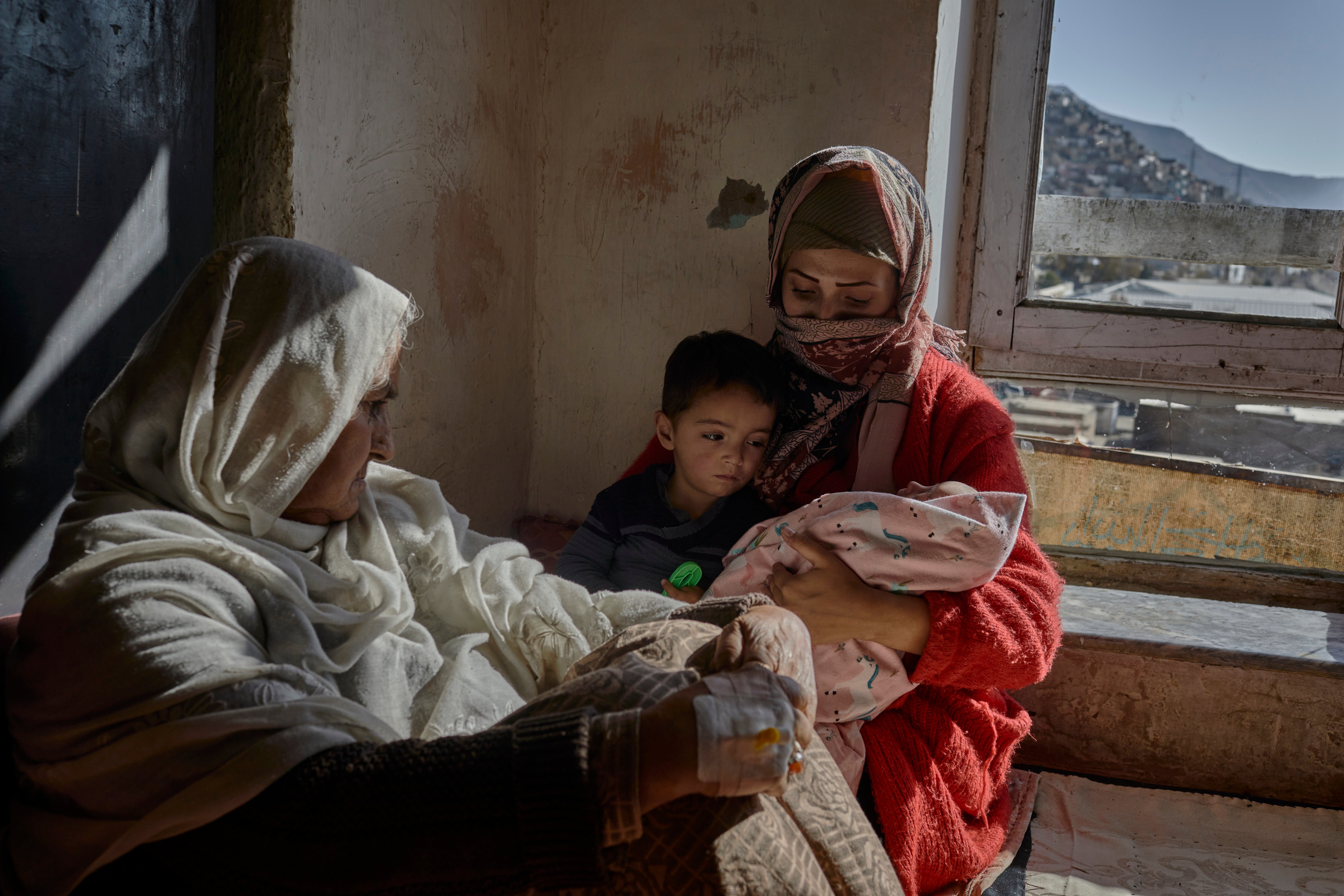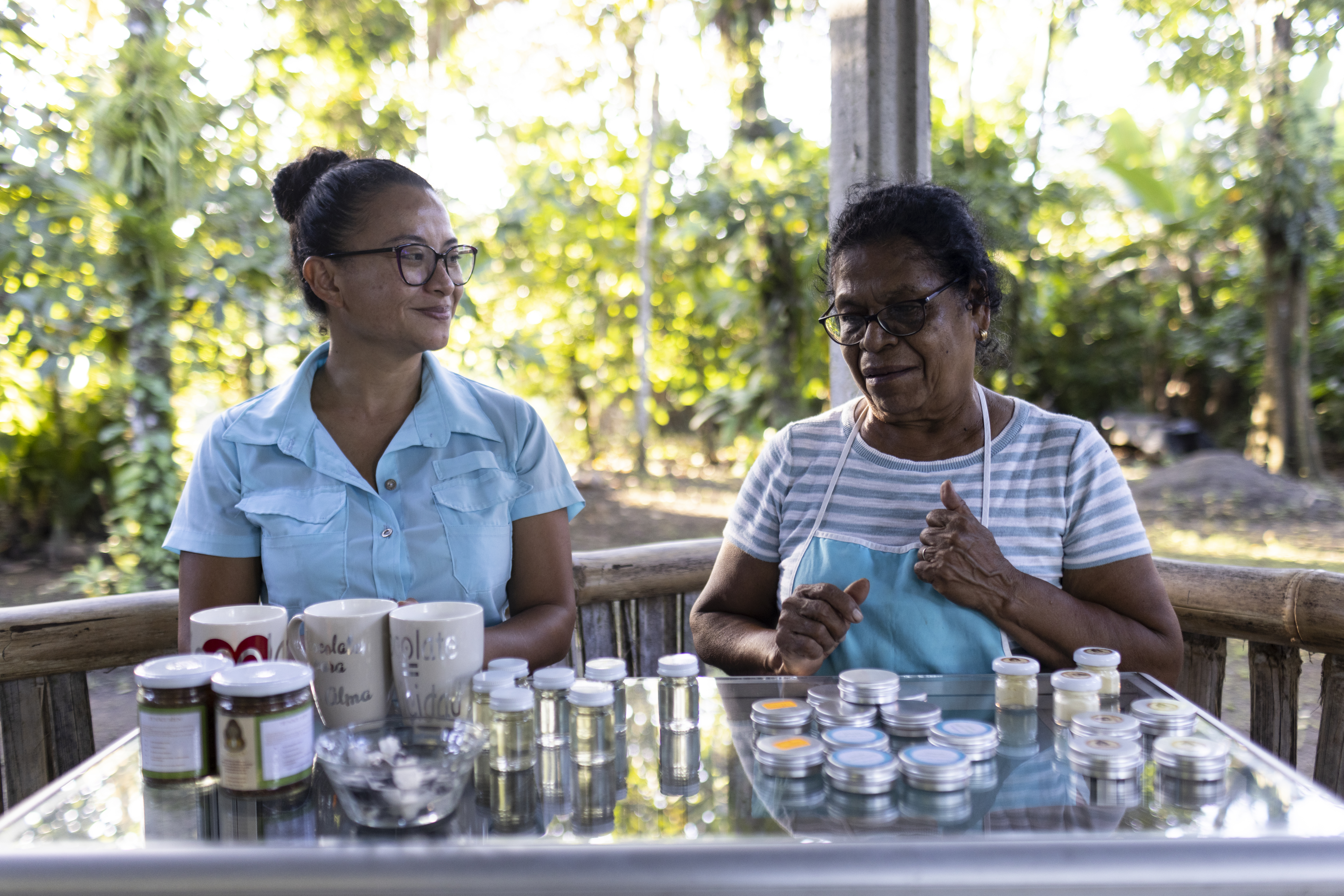Afghan weaving widow turns a corner with help of UNHCR
Afghan weaving widow turns a corner with help of UNHCR

CHOBASH KALAN, Afghanistan, May 15 (UNHCR) - Over the past quarter century 57-year-old Mama Gul has suffered tragedy after tragedy. First, her husband was shot dead at a checkpoint hours before her seven-year-old son was murdered in front of her.
"I don't know why my husband and my son were killed," the matriarch told UNHCR, adding that she fled from her village, Chobash Kalan, returning a few years later. There was more to come; her surviving son died of measles at age three and her brother died 13 years ago from illness. And on top of all that, she is partially sighted.
After her brother died, Mama Gul agreed to look after his four children because her sister-in-law was forced to remarry and abandon her children. They grew up alongside Mama Gul's own two daughters. It was a struggle to provide for so many mouths, but she made some money from weaving carpets and working as a domestic help after returning to Chobash Kalan. She also gratefully accepted food and second-hand clothes and shoes from her neighbours.
"I had nothing in my life, nothing. No animals, no land. It was very difficult, I often went hungry," she said before explaining that her life took a dramatic turn for the better a year ago when the UN refugee agency identified her as a beneficiary for a community-based shelter programme. She was chosen as a former displaced person who had special needs as a widow, with a disability and lacking adequate shelter for herself and her dependents.
"The year 2013 will always be special for me. I was given help to build a home," she told visitors to her sturdy mud house in northern Afghanistan," adding that "even animals would not live in the kinds of houses I stayed in before." The home was built on land given to Mama Gul by her 17-year-old nephew Aberdeen as thanks for raising him and his siblings.
To help her get through the winter in her new home, the refugee agency gave her cash for fuel and a number of household items, including a solar-powered lamp, which has proved a boon.
She is fascinated with the lamp. "I have never seen anything like this. Imagine, the sun charges the lamp," she said in awe. What's more, it has helped her earn a regular income, allowing Mama Gul and her daughters and nieces to weave Turkmen carpets late into the night. "I would not be able to see or weave without the lamp," Mama Gul stressed.
She used to weave for locals, but now sells her carpets to traders who export to Pakistan and bring her new designs to copy. "They give us the raw material and we weave for them," she said with pride. It takes her about seven months to weave a carpet and this is her only source of income now.
The help she has received from UNHCR and others, and the turn round in her personal situation, seems to have energized the feisty 57-year-old. Looking around her home, she looks content.
Happy with the UNHCR blankets, the kitchen set that she keeps locked in a trunk, the plastic sheeting, the gas cylinder that she uses every day, she cannot believe how much her life has changed. "I don't need anything else. How could I have bought any of this from the bazaar, and where would I have ever found a lamp like this?," she asked.
By Nayana Bose in Chobash Kalan, Afghanistan








